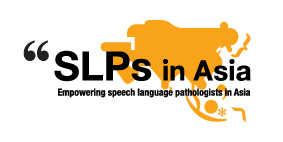Brief History of SLP development
The speech-language pathology program in Thailand was initiated in 1974 by two founders (Lertsukprasert & Dechongkit, 2014). Professor Poonpit Amatayakul received a Master’s of Audiology at Temple University in the U.S. in 1968. Dr. Rochana Dardarananda also studied speech-language pathology at Temple University and received a Master’s of Speech-Language Pathology in 1971. After they returned to Thailand, the two professors worked together to create a post-bachelor’s training program at Mahidol University. With continuing advice from faculty members at Temple University—including M. Halfon, Carolina Town, M. Goehl, and Rosenberg—the program educated people who earned degrees in nursing, education, linguistics, public health, and medicine.
Education
In 1976, the faculty of Graduate Study at Mahidol University offered a two-year SLP program designed to train 10 to 12 students per year in audiology and speech-language pathology (SLP). In 2004, in addition to a master’s degree, Mahidol University began to offer the first bachelor’s program in Thailand. It is a four-year program, with an enrollment of approximately 30 students per year (e.g., 15 Audiology and 15 SLP). In 2016, the faculty of medical technology at Chiangmai University launched a two-year master’s program, enrolling six to eight students per year. In 2020, the faculty of medicine at Khonkaen University launched another two-year program of Master of Sciences in Communication Disorders, enrolling five to seven students for both audiology and SLP. In short, one bachelor’s of science program in Bangkok and three master’s programs in Bangkok, Chiangmai (north) and Khonkaen (northeast) offer the communication sciences and disorders educational programs in Thailand.
Licensure system
Students must choose either speech therapy or audiology as a major in each program. They then must complete 350 practical hours related to their specialty. Students who graduate from the bachelor’s or master’s program are eligible to take a national SLP or audiology examination. After passing the license exam, graduates must be registered by the Division of Art of Healing before working in the field. The national examination is administered once a year under the policy of the Ministry of Health. Without a license, an individual cannot provide speech therapy or audiological services. In 2018, a new regulation for continuing education was established. A minimum of 50 continuing professional education units are required to renew registration every five years.
With a bachelor’s degree, audiologists can provide services in basic audiometry, tympanometry, otoacoustic emissions testing, auditory brainstem response testing in adults, hearing aid fitting in adults, and aural rehabilitation and hearing conservation programs. With a master’s degree, audiologists can provide pediatric services (e.g., hearing evaluation in young children, hearing aid fitting, cochlear implant mapping and rehabilitation, and vestibular disorders). With a bachelor’s degree, speech therapists can diagnose and provide therapy for patients with articulation disorders, delayed speech and language development, and aural rehabilitation needs. With a master’s degree, speech therapists can diagnose and treat medically related patients with voice disorders, cleft palate speech, swallowing disorders, and cognitive communication disorders. The number of professionals in Thailand remains limited because, when the communication disorders academic program started, only individuals with a bachelor’s degree in a relevant field were accepted to study in the master’s degree program. This resulted in a slow, gradual increase of professionals. As of December 2022, there are 461 certified communicative disorders professionals and 222 Thai Speech-Language and Hearing Association members in Thailand.
